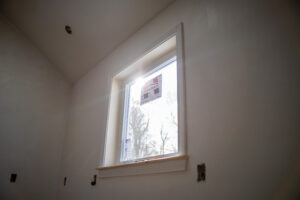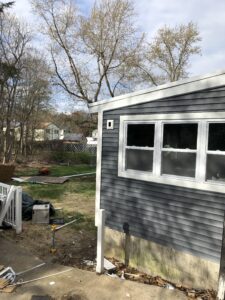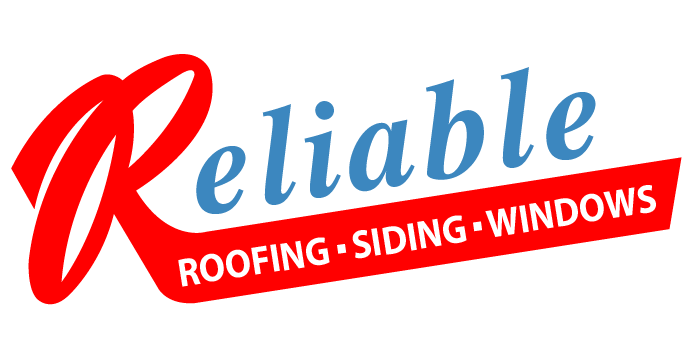Introduction
Replacement home windows are not just functional elements of your home; they are crucial investments that enhance comfort, security, and energy efficiency. Whether you’re dealing with drafty, old windows that struggle to keep the cold out or simply seeking to increase your property’s value, replacing your windows can provide both immediate and long-term benefits. Here’s a quick overview:
- Increase Home Value: Upgraded windows are a key selling point for potential buyers.
- Enhanced Comfort: New windows reduce drafts and help maintain consistent indoor temperatures.
- Reduced Energy Bills: With better insulation from modern windows, you can save considerably on heating and cooling costs.
- Improved Security: Newer windows often come with advanced locking mechanisms and tougher glass.
- Noise Reduction: High-quality windows can significantly cut down on external noise, creating a more peaceful indoor environment.

In this guide, we’ll explore the essential aspects of replacement home windows, helping you make an informed decision tailored to both your needs and preferences. From understanding different window types to grasping installation processes, we aim to cover all bases to ensure your home improvement journey is as smooth as possible.
Understanding Replacement Home Windows
When considering replacement home windows, it’s crucial to understand the different types, materials, and styles available. This knowledge will help you choose windows that not only enhance your home’s aesthetics but also improve functionality and energy efficiency.
Types of Windows
- Double-Hung Windows
- Functionality: Both the upper and lower sashes can move up and down, allowing for better air circulation.
- Cleaning: These windows are designed to tilt inwards, making them easier to clean from the inside.
- Ventilation: You can open both the top and bottom sashes partially to control airflow.
- Casement Windows
- Design: Hinged on one side, these windows open outward with a crank.
- Seal: When closed, the sash presses tightly against the frame, enhancing their airtightness.
- View: Provides a clear, unobstructed view since they do not have a rail like double-hung windows.
- Awning Windows
- Utility: Hinged at the top, they open outward from the bottom, allowing for ventilation even during light rain.
- Placement: Often placed higher on walls, providing privacy and natural light without compromising security.
Window Materials
- Vinyl
- Cost: Generally the least expensive, making it a popular choice for budget-conscious homeowners.
- Maintenance: Requires minimal upkeep as it does not need painting or staining.
- Energy Efficiency: Offers good insulation properties, especially when filled with argon gas.
- Wood
- Aesthetics: Offers a classic, warm look and can be painted or stained to match your home’s decor.
- Insulation: Natural insulator against heat and cold.
- Maintenance: Requires more upkeep to prevent decay, warping, or insect damage.
- Composite
- Durability: Made from a blend of materials, including wood fibers and plastic, to resist weathering and thermal damage.
- Appearance: Can mimic the look of natural wood without extensive maintenance.
- Stability: Less prone to expansion and contraction with temperature changes than pure wood.
Window Styles
- Modern
- Features: Sleek, minimalistic frames with large glass areas for maximum light.
- Spaces: Ideal for contemporary homes wanting to make a statement or enhance natural views.
- Traditional
- Design: Often features grilles and multi-pane glass that add character to period homes.
- Versatility: Works well with colonial, Victorian, or craftsman-style homes.
- Custom
- Tailored: Made to order to fit unique sizes or shapes not typically available in standard windows.
- Personalization: Allows for the integration of specific features, colors, or patterns that reflect personal style.
Understanding these options in replacement home windows ensures that you choose the best windows for both the style and efficiency needs of your home. Each type and material offers unique benefits, and the right choice depends on your specific requirements and climate conditions.
Cost of Replacement Home Windows
When considering replacement home windows, understand the various costs involved. This section will guide you through budgeting effectively, understanding price ranges, and considering labor costs.
Factors Affecting Costs
Several factors can influence the cost of your new windows:
- Size: Larger windows generally cost more due to more materials and labor.
- Material: Choices like vinyl, wood, or fiberglass vary in price. Vinyl is usually the most affordable, while fiberglass tends to be on the higher end.
- Installation Complexity: Features like custom shapes or full-frame replacements can increase installation difficulty and cost.
Each of these elements can significantly impact your final bill, so it’s crucial to consider them when planning your project.
Average Costs
The cost of replacement home windows can vary widely based on the factors mentioned above. Here’s what you can generally expect:
- National Averages: On average, homeowners might spend about $550 for a single vinyl replacement window. However, replacing all windows in a typical home could range from $3,500 to $10,500.
- Regional Variations: Costs can also vary by region due to differences in labor rates and the cost of materials. For instance, window replacement might be more expensive in areas with higher living costs or specific building code requirements related to climate.
Labor Costs
Labor can account for a significant portion of window replacement costs. Installation generally ranges from $100 to $300 per window but can vary based on the complexity of the job and local labor rates.
Budgeting Tips:
- Get Multiple Quotes: Always get several bids to ensure you’re getting fair pricing.
- Consider Long-Term Savings: Higher upfront costs for more energy-efficient windows can lead to significant savings on heating and cooling bills.
By understanding these cost factors and averages, you can better budget for your replacement home windows project and choose options that best fit your needs and finances. Next, we’ll explore the installation process and what to expect whether you choose DIY or professional installation.

Installation Process for Replacement Home Windows
Installing replacement home windows can dramatically improve your home’s energy efficiency, security, and aesthetic appeal. Whether you decide to install the windows yourself or hire professionals, understanding the process is crucial. Here’s what you need to know about both DIY and professional installation methods, including the tools needed, the level of skill required, potential risks, and the typical timeframe for completing the job.
DIY Installation
Tools Needed:
– Tape measure
– Level
– Hammer
– Drill
– Screwdriver
– Caulking gun
– Insulation materials
Skill Level:
DIY window installation requires a moderate to high level of handyman skills. You should be comfortable using power tools and have a good understanding of home construction basics.
Risks:
– Incorrect Measurement: One common mistake is incorrect measuring, which can lead to buying the wrong size windows, resulting in gaps and poor insulation.
– Improper Installation: This can cause issues like drafts, leaks, and even structural damage over time.
– Potential Injury: Using tools improperly can lead to personal injury.
DIY window replacement can be a rewarding project, but it’s important to be fully aware of the challenges and risks. If you’re not confident in your abilities, professional installation might be a safer and more efficient choice.
Professional Installation
Certification:
Look for professionals who are certified by industry bodies such as the American Window and Door Institute or Installation Masters. Certification ensures that the installer has been trained to install windows properly to maximize their performance and durability.
Experience:
Experienced installers will be able to handle unexpected issues that may arise during the installation process. They can ensure that the windows fit perfectly, are sealed correctly, and function as intended.
Warranty:
Professional installations often come with a warranty not just for the windows but also for the labor. If something goes wrong related to the installation, it can be corrected at no additional cost. Make sure to ask about the warranty details before hiring an installer.
Timeframe:
The time it takes to install replacement windows can vary greatly depending on the number of windows and the type of installation. A full home window replacement typically takes about 1 to 2 days once the windows have arrived and the old ones have been removed. However, custom windows or additional structural adjustments can extend this timeframe.
Choosing professional installation for your replacement home windows not only minimizes risks but also ensures that your windows perform optimally for years to come. With professionals, you can expect a smoother, faster process and peace of mind with warranties on both materials and labor.
Next, we’ll explore the benefits of opting for energy-efficient windows, including how they can save you money and contribute to a more comfortable home environment.
Benefits of Energy-Efficient Replacement Home Windows
Energy-efficient windows are not just a home improvement; they’re an investment in comfort, savings, and sustainability. Let’s delve into how these windows make a difference, focusing on Energy Star certification and advanced window technologies like Low-E coatings, argon gas, and Warm-Edge spacers.
Energy Star Certification
Criteria and Benefits
Energy Star-certified windows meet strict criteria set by the U.S. Environmental Protection Agency. As of late October 2023, the standards have been updated, requiring a U-factor no higher than 0.22 in the Northern Zone and 0.32 in the Southern Zone. The Solar Heat Gain Coefficient also saw adjustments to better suit regional climates—no less than 0.17 in the North and no more than 0.23 in the South.
Savings Potential
Windows that meet these new standards offer significant energy savings. By installing Energy Star-certified windows, homeowners can reduce their heating and cooling costs, thanks to better insulation and less air leakage. The Inflation Reduction Act of 2022 even offers a 30 percent federal tax credit on these windows, up to $600 a year, making them a financially smart choice.
Advanced Technologies
Low-E Coatings
Low-E (low-emissivity) glass coatings are a game-changer in window technology. These microscopic, metallic coatings are applied to the glass and act as a thermal mirror. In the summer, they reflect the sun’s heat away from your home, and in the winter, they reflect interior heat back inside, keeping your living space at a more consistent temperature.
Argon Gas
Argon gas is used between the panes of glass in double and triple-glazed windows. This colorless, odorless gas provides better insulation than air because it is denser, reducing heat transfer through the window. This means your heating and cooling systems don’t have to work as hard, lowering your energy bills.
Warm-Edge Spacers
The spacer system in a window, which separates the glass panes, greatly affects a window’s energy efficiency. Traditional spacers often conducted heat and contributed to window condensation. The Warm-Edge Spacer technology used in our windows minimizes these issues. It reduces heat loss and prevents condensation by eliminating metal-to-glass contact and using a design that keeps the edge of the glass warmer.
Environmental Impact
Choosing energy-efficient windows not only benefits you financially but also reduces your carbon footprint. By using less energy to heat and cool your home, you’re contributing to less overall energy consumption, which is crucial for environmental sustainability.
Energy-efficient windows also improve the comfort of your home by maintaining a consistent indoor temperature and minimizing condensation, which can lead to mold or mildew. Plus, they protect your home’s interior from UV damage, which can fade fabrics and furnishings.
In conclusion, opting for energy-efficient replacement home windows with Energy Star certification and advanced technologies like Low-E coatings, argon gas, and Warm-Edge spacers, not only enhances your home’s comfort and aesthetic but also contributes to significant energy savings and environmental protection. Next, we will answer some frequently asked questions about replacement home windows to help you make informed decisions for your home improvement projects.

Frequently Asked Questions about Replacement Home Windows
How much should you spend on replacement windows?
Deciding how much to spend on replacement home windows can vary widely based on several factors. Typically, the national average cost for replacing a single window ranges from about $300 to $700, but this can change depending on the materials, window types, and whether you’re opting for custom features. Investing more initially in higher-quality windows can save you money in the long run on maintenance and energy costs.
Should I replace 20-year-old windows?
Yes, replacing 20-year-old windows is generally a good idea. Windows that are over two decades old likely aren’t as efficient in terms of energy use and noise reduction. Modern windows come with improved technology that can better insulate your home and reduce heating and cooling costs. Additionally, new windows can enhance security with better locks and more durable materials.
Can you replace home windows yourself?
Replacing home windows yourself is possible, but it comes with significant risks. Proper installation is crucial to ensure that the windows function correctly. Incorrect installation can lead to problems like leaks, drafts, and even structural damage over time. If you’re not experienced in window installation, it’s wise to hire a professional. This ensures that the job is done safely and correctly, and it often comes with the added benefit of a warranty.
In the next section, we will explore why choosing Reliable Roofing for your window replacement is a beneficial decision, considering their extensive experience, robust warranties, and local expertise.
Choosing Reliable Roofing for Your Window Replacement
When it comes to replacing your home windows, the choice of contractor is just as important as the type of windows you choose. Reliable Roofing stands out as a prime choice for your window replacement needs. Here’s why:
Experience
Reliable Roofing has years of experience in the window replacement industry. This experience translates into a deep understanding of what different homes need for both functionality and aesthetics. They are skilled in handling various window types and materials, ensuring that every installation is tailored to the specific requirements of your home. Their proven track record is backed by numerous successful projects and satisfied customers.
Warranties
One of the major advantages of choosing Reliable Roofing is their comprehensive warranties. They provide robust coverage for both the materials used and the workmanship. This means that if any issues arise with the replacement home windows due to material defects or installation errors, you’re covered. The peace of mind that comes from knowing you can rely on this support is invaluable.
Local Expertise
Reliable Roofing is deeply familiar with the local climate and architectural styles, which significantly influences the choice and installation of replacement home windows. Their knowledge of local building codes and weather patterns ensures that they choose and install windows that can withstand local conditions and complement the aesthetic of your neighborhood.
Choosing Reliable Roofing means opting for a partner who understands the intricacies of window replacement. Their commitment to quality and customer satisfaction makes them a top choice for homeowners looking to enhance their property’s comfort, efficiency, and appeal.
In the following sections, we will delve into more specific questions you might have about replacement home windows, including costs, energy efficiency, and DIY possibilities.
Conclusion
When it comes to making the decision to invest in replacement home windows, it’s not just about choosing new windows; it’s about choosing the right partner to guide you through the process and ensure you reap all the potential benefits. At Reliable, we understand the importance of this decision and are committed to supporting you every step of the way.
Long-term Benefits of installing high-quality replacement windows include increased energy efficiency, which can significantly reduce your heating and cooling costs. Moreover, new windows can enhance the curb appeal and overall value of your home, making it a wise investment for the future. With features like ENERGY STAR certification, our windows meet high standards for energy efficiency, ensuring that you save money and support the environment.
For more information or to start your journey towards better home comfort and efficiency, visit our service page or contact us directly. We’re here to help you make the best choices for your home, providing expert advice and top-notch installation services.
Choosing Reliable means ensuring that your home not only looks great but also performs well, keeping you comfortable throughout the seasons. Let us help you make the right decision for your home’s future.



